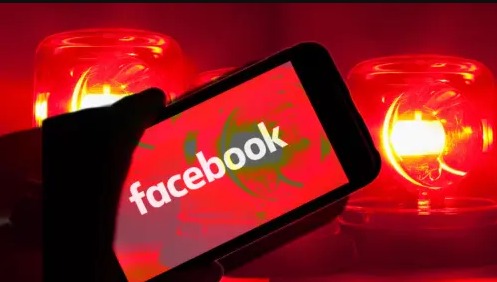Social media giant Facebook has been criticised for allowing its platform to be used as a vehicle for hate-speech, with minimum moderation given to non-English pages, which has caused recurrent problems in sharply-polarised countries like Nigeria and Ethiopia.
Facebook whistleblower Frances Haugen shocked US senators on Tuesday 5 October after she testified that the social media giant is well aware of the negative impacts of the site, including “ethnic violence” in Myanmar and Ethiopia.
Facebook is criticised for fanning the flames in Ethiopia, where the armed conflict between the government and the Tigray People’s Liberation Front (TPLF) continues.
…this bloodshed was supercharged by the almost-instant and widespread sharing of hate speech and incitement to violence on Facebook, which whipped up people’s anger…
An investigation by Vice in September 2020 revealed that ethnic violence, which at the time was sparked by the death of Hachalu Hundessa, was “supercharged” by hate messages spread on the platform. Vice reported that “this bloodshed was supercharged by the almost-instant and widespread sharing of hate speech and incitement to violence on Facebook, which whipped up people’s anger.”
Hundessa was part of the Oromo ethnic group, and the events that followed [his death] left hundreds dead, including minorities like Christian Amharas, Christian Oromos, and Gurage people suffering the biggest losses.
‘Election integrity’?
Facebook is currently worth $1trn, with 2.8 billion users worldwide – 60% of all internet -connected people on earth.
In June, before Haugen’s testimony, Facebook’s head of public policy for East and Horn of Africa, Mercy Ndegwa, released a statement about “election integrity” in Ethiopia. She said the company was working to “detect and remove hate speech and content that incites violence” as part of the company’s “ongoing work to reduce the spread of misinformation”.
The result has been a system that amplifies division, extremism, and polarisation…
Last month, Ethiopia’s state communication services reported that they were creating an alternative to Facebook, but still allowing the social media giant to operate freely.
Haugen joined Facebook in 2019 after a close friend was radicalised online. The whistleblower supports criticism that Facebook has negatively impacted events worldwide.
“The result has been a system that amplifies division, extremism, and polarisation — and [undermines] societies around the world. In some cases, this dangerous online talk has led to actual violence that harms and even kills people,” she told the US senators.
Facebook founder and CEO Mark Zuckerberg rebutted these claims, saying: “We’ve removed content that could lead to imminent real-world harm, we’ve built an unprecedented third-party fact-checking program. The system isn’t perfect, but it’s the best approach that we’ve found to address misinformation in line with our country’s values.”
Lack of regulation in Africa
The company has been criticised for lack of regulation in Africa, including the omission of ‘Community Guidelines’ in local languages and a lack of moderators on the continent. More than 139 million people in Africa use Facebook – and almost entirely on mobile, meaning the lack of regulation is a blind spot for safety on the platform.
The company is reported to have also failed to tackle this problem in Asia.
In Nigeria, a lack of moderation allowed Nnamdi Kanu, founder of the Indigenous People of Biafra (IPOB), to spread violent messages and hate speech. The group, considered a terrorist organisation since 2017, used Facebook to push followers to a private app without censorship.
The country previously cracked down on social media after Twitter deleted a controversial statement by President Muhammadu Buhari. The government responded by suspending the platform, indefinitely, from operating in the country. In response to the ban, Alhaji Lai Mohammed, the minister for information and culture, said that the government would not hesitate to ban other platforms that promote disunity.
Then who is Facebook to decide what is hate speech and how is confessional statement hate speech?
This move has struck a chord with some Nigerians, with an anonymous group calling on the government to permanently ban Facebook from operating in the country. The group, which posted a video of this message on social media, said they had reported Facebook’s censorship to the Federal Ministry of Justice.
READ ALSO: US cops drag paraplegic African American out of the car by his hair
In the video, one person is heard saying: “These things happen because these guys gave me a strike for sharing a confessional statement of a terrorist. Then who is Facebook to decide what is hate speech and how is confessional statement hate speech?”
Continued expansion despite no control
However, whilst legislation is in place for most industries, firm regulation for social networks is still not present, as the technology for this is continually developing. Facebook regulators cannot see the intricacies of what makes the site so addictive or how it suggests content for its users. Without vital information about the social network, uprooting the toxic seeds that have started to spread through society will be virtually impossible.
Despite this, expansion of the company’s services throughout the continent continues. “Facebook is partnering with wireless carriers and other groups to expand internet access in countries, including Uganda and the Democratic Republic of Congo, where it has yet to officially support widely-used languages such as Luganda and Kituba,”














